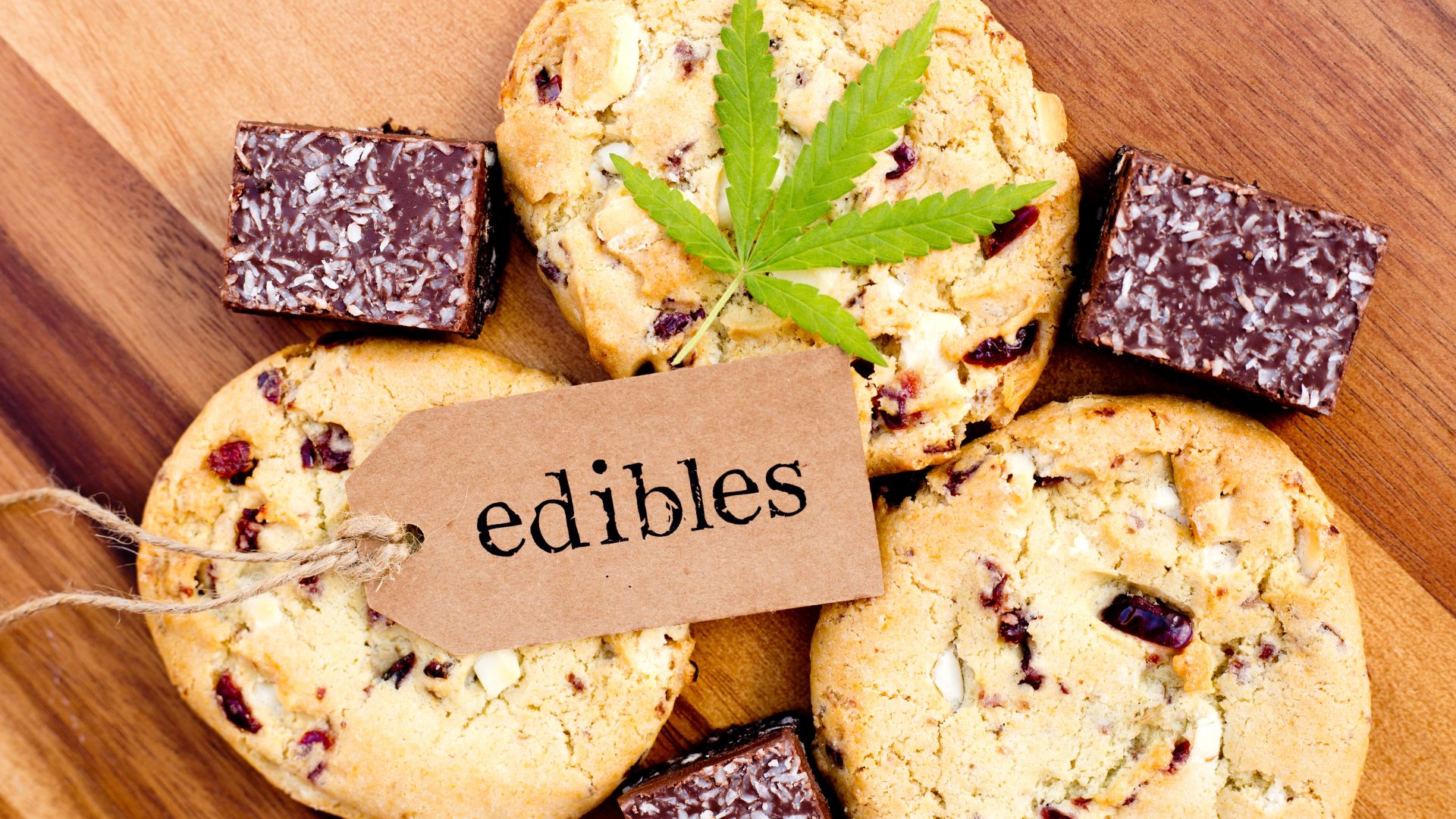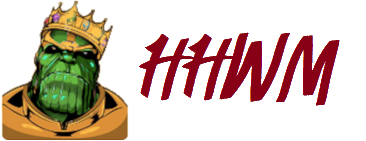
Why Don’t Edibles Get Me High?
Edibles – you either love them, or you really love them. What’s not to like? Your favourite cake, cookie, candy or meal lovingly infused with your favourite marijuana. It’s a recipe for happiness. Eat food, get high – and boy, do edibles hit hard. But what if you’re one of those people who take edibles and get nothing from them? If you’ve ever asked, “why don’t edibles get me high?” this article’s for you.
As people who consume pot edibles will likely tell you, they hit harder than joints. Not only that, but the effect can last a good bit longer than a joint, pipe or bong hit. With edibles undergoing a massive resurgence in popularity thanks to dispensaries and online retailers, it’s a good time to buy, try, or make your own edibles to see what all the fuss is about. We’ll link to some recipes at the foot of the page, but for now, let’s answer the question, “why don’t edibles get me high?”.
How Edibles Work
Cannabis in edible form works differently from smoking. When you smoke cannabis, THC goes through the lungs, straight into the bloodstream, and goes to your brain. Just like that, you feel the effects. Edibles take a longer route to the brain via an altogether more complex system of travel.

When you eat cannabis-infused foods, THC is absorbed by the intestines and then the liver. There, the liver filters cannabinoids out of the bloodstream. This filtering process changes the chemical composition of THC into 11-hydroxy-THC, which has a longer-lasting effect and increased psychotropic potential[1].

As a result of the extra travel and the extra processing, edibles take longer to produce effects. Any seasoned consumer of edibles will tell you that you must wait at least a good half hour before the familiar sensations take over you. And many newcomers to edibles will think they’ve been conned. It’s common for newbies to down some edibles and, feeling nothing after 15-20 minutes, re-dose. This is a disaster waiting to happen; the first edible kicks in, followed soon after by the second, and before you know it, you’re facetiming the living room rug.
Why Edibles May Not Work
If you’ve waited a reasonable amount of time (an hour or so [2]) and still haven’t felt the effects of your edible, there’s a good chance you won’t. There are numerous reasons for this, ranging from elementary to more technical. Use a process of elimination to narrow it down, if you can, and understand where things went wrong.
Too Low a Dose
A classic mistake and one that’s all too easy to make is to underdose. Dosing pot edibles is a double-edged sword; too much and you risk blackout, but too little and you won’t feel much of anything. If you’ve opted to go down the cautious route, that’s wise. There’s nothing wrong with playing it safe, but if you start on too low a dose, you’ll feel little to no effects. Your tolerance has a say in this, as well. If you’re a seasoned smoker who can still stand after a good session, you’ll need a reasonably high dose to get reasonably high.
How to Fix it:
A rookie should aim for 5-10mg of THC per serving. If you’re more experienced, go a little higher.
You Didn’t Decarboxylate Your Cannabis First
If you’ve made your own edibles, this rookie mistake may have cost you your chance of getting buzzed. Without decarboxylating first, you won’t get the same potency from the cannabis. Decarboxylation is a lot simpler than the fancy name suggests – all you do is activate the cannabinoids in your bud via heat application.

How to fix it:
- Before making edibles, preheat your oven to 110°C.
- Take the buds you’ve set aside for your recipe and spread them out on a baking tray.
- Put them in the oven at 110 for 40-45 mins.
This will activate the cannabinoids, and you’ll be well on your way to success.
You ate Edibles on an Empty Stomach
Surprising though it may sound, if you want to maximise your buzz, you should eat your edibles after consuming some food. Better yet, if you pair or chase your edible with some food with high-fat content, you could be well on your way to a jolly old time.
Having some fat in your stomach can help with absorption and maximise the narcotic effect of THC. Better still, some foods are thought to be efficient in intensifying your high. Choose wisely!
How to fix it:

This one’s pretty low on the scientific scale – have a small meal before you consume your edibles. It’ll slow down the absorption rate, so keep it to a small bite rather than a three-course meal. Eating edibles after a colossal dinner could be putting a nix on your bid to get buzzed.
Your Body is too Efficient in Processing THC
What’s your metabolism like, in general? Are you a lean, mean, fat-burning machine? How you metabolise food is one thing, but our bodies also differ in terms of how we metabolise THC. It gets worse – an as-yet-unknown percentage of people may have a gene that sees them process THC so fast they don’t even get the opportunity to experience the psychoactive effect[3].
How to fix it:
Upping your dose may seem like the most suitable remedy here. Try gradually increasing THC in your edibles, but be careful. If you’re among the few who metabolise THC at lightning speed, doubling your dose is not necessarily a great idea.

If increasing the dose still leaves you feeling all too sober, edibles may not be for you. Try a cannabis spray, the sublingual kind. Scoot a few drops under your tongue and wait to see if that does the trick. This method puts the THC into the mucus membrane in the mouth, straight into the bloodstream, without travelling to the liver for filtering. If It works successfully, you have your answer.
Your THC tolerance is too High
Most seasoned cannabis users experience this at some point. When your body becomes well-accustomed to dealing with THC regularly, it’ll establish a high tolerance. This can happen with many other things, including medications and alcohol. When your tolerance gets too high, you need to take a larger quantity of the substance to get the same effect.
In the case of cannabis, you need to up the dose to get buzzed since the body becomes used to process the amount of THC you’re feeding it. Unfortunately, it becomes more efficient in handling it, and the result is a lesser effect in terms of your high[4].

How to fix it:
There are several ways to address a high THC tolerance. One is to take a break for a few days – or better yet, a couple of weeks. You’ll find that by doing so, your CB1 receptor availability increases, meaning THC has more sites to bind with, and voila – you can get high again.
Alternatively, it’s going to be tempting to simply up the dose. You can do this, of course – just play it safe[5]. Don’t double up, and don’t scoff edibles by the handful, as this could lead to severe incapacitation. Always seek to dose carefully and responsibly.
Final Thoughts
There are varying reasons why edibles may not be effective. These may depend on the individual and their specific biology, or it may be something as simple as a poor-quality product. If you’ve taken care of all the variables you can manage – decarboxylation, high-quality cannabis, and so on – and edibles still don’t get you where you need to be? Stick with a method that does get you high.
[1]https://www.ncbi.nlm.nih.gov/pmc/articles/PMC3196989/[2] https://www.sciencedirect.com/science/article/abs/pii/S221479931830064X?casa_token=0H0JP4AU18AAAAAA:BYPWsVOsfyhQy4JPjLaqmJj6VNePIEbgVnd-ogZGdWdKAM5Tm9GbYT4zYH-tEOBcda91NWTpmw&_ga=2.84015184.891491603.1671709532-1202591629.1671709532
[3] https://www.bostonglobe.com/2021/05/12/marijuana/ediblocked-some-people-cant-get-high-eating-marijuana-scientists-arent-sure-why/?outputType=amp&_ga=2.78650461.891491603.1671709532-1202591629.1671709532
[4] https://www.sciencedirect.com/science/article/abs/pii/S0149763418302665?_ga=2.79813342.891491603.1671709532-1202591629.1671709532
[5] https://www.sciencedirect.com/science/article/abs/pii/S221479931830064X?casa_token=0H0JP4AU18AAAAAA:BYPWsVOsfyhQy4JPjLaqmJj6VNePIEbgVnd-ogZGdWdKAM5Tm9GbYT4zYH-tEOBcda91NWTpmw&_ga=2.116399055.891491603.1671709532-1202591629.1671709532
Cultivation information, and media is given for those of our clients who live in countries where cannabis cultivation is decriminalised or legal, or to those that operate within a licensed model. We encourage all readers to be aware of their local laws and to ensure they do not break them.
Source link












